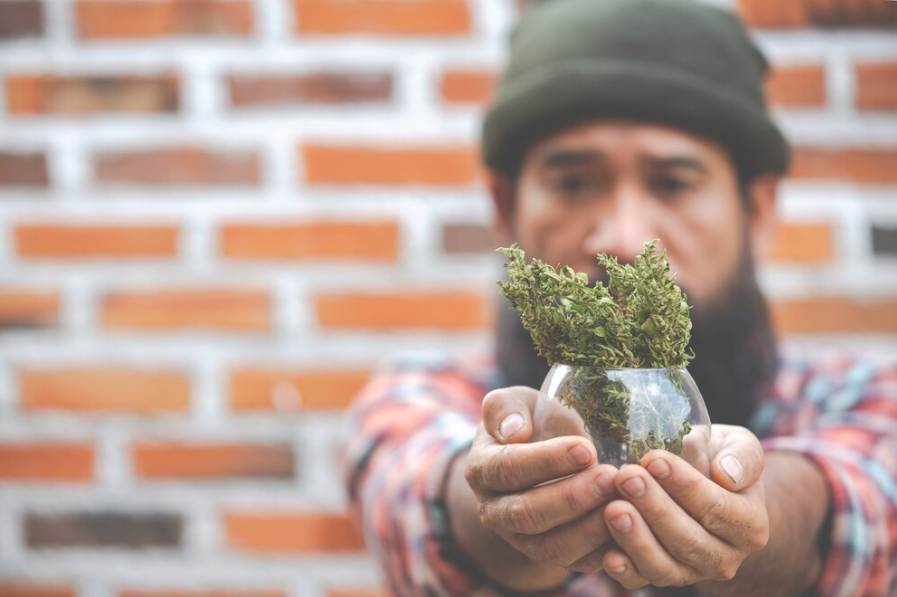Can Using Cannabis Products Place You at Risk for Cannabis-Induced Psychosis?
Have Cannabis Products Increased in Potency?
Cannabis products have undergone a significant increase in potency over the past few decades. THC (delta-9-tetrahydrocannabinol), the primary psychoactive component in cannabis, has risen from an average of around 4% in the 1990s to over 17% today. Many modern cannabis products, such as concentrates, dabs, and edibles, contain THC levels of up to 90%, posing potential risks for adverse mental health effects, particularly in young users. The rapid rise in THC levels is driven by selective breeding, advancements in cultivation methods, and consumer demand for stronger effects.[1][2]
What is Drug-Induced Psychosis?
Drug-induced psychosis occurs when substance use triggers psychotic symptoms, such as hallucinations, delusions, paranoia, and disorganized thinking. Symptoms may appear during intoxication, withdrawal, or after prolonged use, depending on individual sensitivities and substance potency. Psychotic symptoms can vary in severity and duration and may require immediate medical intervention.[3]
Common Symptoms of Drug-Induced Psychosis:
- Hallucinations: Seeing, hearing, or feeling things that are not present.
- Delusions: Strongly held false beliefs that contradict reality.
- Disorganized Thinking: Difficulty expressing coherent thoughts or speech.
- Mood Swings and Anxiety: Rapid shifts in mood and intense fear or agitation.
- Paranoia: Suspicion and fear without basis.
- Lack of Insight: Difficulty recognizing the distorted nature of one’s perceptions.
Certain individuals are predisposed to experiencing psychosis, especially those with genetic, familial, or environmental risk factors. Cannabis use, particularly products with high THC, can exacerbate this predisposition, leading to substance-induced psychosis or triggering underlying mental health disorders.
Cannabis, Psychosis, and Co-Occurring Disorders
The link between cannabis and psychosis is complex. High-potency cannabis use, especially during adolescence, increases the risk of developing psychotic symptoms and disorders, particularly in those with genetic susceptibility or a history of psychiatric conditions.[4]
For individuals with existing mental health disorders such as schizophrenia or bipolar disorder, cannabis can worsen symptoms and lead to more frequent episodes. Using cannabis to self-medicate can become a harmful cycle, complicating recovery and increasing the risk of dependency. Addressing cannabis-induced psychosis and co-occurring disorders requires a comprehensive treatment approach.
What are the Treatment Options for Cannabis-Induced Psychosis?
Effective treatment for cannabis-induced psychosis begins with a thorough assessment to determine the extent of psychotic symptoms and any co-occurring disorders. Treatment options include:
1. Residential Mental Health Treatment
In cases of severe psychosis, residential treatment offers a structured environment, 24/7 support, and comprehensive therapeutic care. Medication may be prescribed to manage symptoms like hallucinations or delusions.
2. Psychotherapy and Counseling
Therapies such as cognitive-behavioral therapy (CBT) help individuals address negative thought patterns and develop healthier coping strategies. Group therapy and individual counseling provide additional support and help manage the emotional impact of psychosis.
3. Outpatient Care
Following residential treatment, outpatient programs offer continued therapy and support to promote long-term recovery. Relapse prevention strategies, regular follow-ups, and community engagement are key components.
4. Holistic Care
Addressing underlying mental health conditions, such as anxiety, PTSD, and depression, is critical to reducing reliance on cannabis. Holistic approaches include mindfulness, lifestyle modifications, and support networks tailored to individual needs.
Integrated care that targets both substance use and co-occurring disorders ensures comprehensive recovery. Personalized treatment plans offer the best chance for improved mental health and lasting sobriety.







